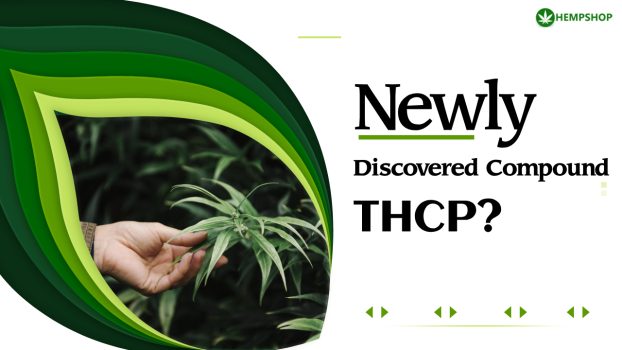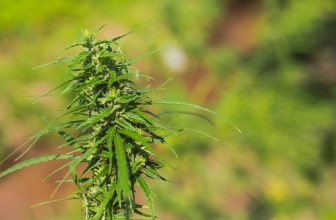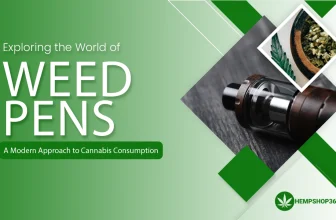What is THCP?
THCP, short for Tetrahydrocannabiphorol, is a naturally occurring cannabinoid found in the cannabis plant. It belongs to the family of compounds known as phytocannabinoids, which interact with the endocannabinoid system in the human body. THCP has gained considerable attention in recent years due to its potential effects and similarities to THC (delta-9-tetrahydrocannabinol), the well-known psychoactive compound in cannabis.
THCP and THC: The Chemical Structure

Examining THCP’s chemical structure can provide valuable insights into its potential effects and interactions within the body.
Things Should Be Know About THCP
- Novel Cannabinoid
- Potential Potency
- Endocannabinoid System Interaction
- Potential Therapeutic Benefits
- THCP Cart and Flower
- Safety Considerations
- Legal Status
- Half-Life
- Future Research
Novel Cannabinoid
Novel Cannabinoid refers to THCP a lesser-known cannabinoid found in cannabis. As a recent discovery, THCP has captured the interest of researchers and cannabis enthusiasts alike. Its unique chemical structure sets it apart from other cannabinoids, and ongoing studies aim to understand its properties and potential effects on the body’s endocannabinoid system. The exploration of THCP as a distinct cannabinoid holds promise for advancing our understanding of cannabis and its potential applications in medicine and wellness.
Potential Potency
Potential Potency refers to the strength and effectiveness of THCP, a cannabinoid found in cannabis. Early research indicates that THCP may possess greater potency than THC (delta-9-tetrahydrocannabinol), the well-known psychoactive compound in cannabis. This heightened potency is attributed to THCP’s unique chemical structure, which includes a longer alkyl side chain.
As scientists delve deeper into THCP’s properties, they aim to understand how this increased potency may impact its interactions with the body’s endocannabinoid system and potential therapeutic applications. Unraveling the potential potency of THCP opens doors to exciting possibilities in the realm of cannabis research and its potential benefits for users.
Endocannabinoid System Interaction
THCP interacts with the body’s endocannabinoid system. What makes THCP unique is its distinct chemical structure, including a longer alkyl side chain. This structural difference may contribute to its potential effects and potency compared to other cannabinoids.
As research progresses, scientists are exploring how THCP interacts with the CB1 and CB2 receptors in the body, leading to various physiological responses.
Understanding THCP’s relation to other cannabinoids is an exciting area in cannabis research, offering insights into its potential benefits and medical applications. Further studies are needed to fully uncover the secrets of THCP and its role within the intricate network of cannabinoids.
Potential Therapeutic Benefits
Potential Therapeutic Benefits of THCP (Tetrahydrocannabiphorol) include:
- Analgesic Properties for Pain Relief
- Anti-Inflammatory Effects for Inflammatory Conditions
- Potential for Managing Mood Disorders and Anxiety
- Exploratory Use in Neurodegenerative and Seizure Disorders
- Research in these areas is ongoing, and further studies will provide a more comprehensive understanding of THCP's therapeutic potential.
THCP Cart and Flower
THCP can be found in various cannabis products, such as carts and flowers. Understanding these forms can help consumers make informed choices.
Two popular ways to consume THCP are through THCP carts and flowers. THCP carts are pre-filled cartridges compatible with vape pens, offering a convenient and discreet method of consumption with precise dosing.
On the other hand, the THCP flower provides a more traditional experience, retaining the natural aroma and taste of the cannabis plant. It can be smoked, vaporized, or even used in cooking, providing a full spectrum of cannabinoids and terpenes for a comprehensive experience.
The choice between THCP carts and flower depends on personal preferences and desired effects, offering exciting opportunities for exploring the potential of this captivating cannabinoid.
Safety Considerations
As THCP (Tetrahydrocannabiphorol) is a newly discovered cannabinoid, its safety profile is not fully understood. Users should exercise caution and start with lower doses, especially due to its potential potency.
Consulting a healthcare professional before use, especially for those with medical conditions or taking medications, is advisable. Obtain THCP from reputable sources to ensure purity and quality.
Adhere to local regulations concerning its possession and consumption. Be vigilant about potential side effects and discontinue use if adverse reactions occur. As research progresses, more comprehensive safety guidelines for THCP consumption will become available.
Legal Status
The legal status of THCP (Tetrahydrocannabiphorol) varies by region and country. As a lesser-known cannabinoid, its regulatory status may differ from that of THC (delta-9-tetrahydrocannabinol) and CBD (cannabidiol).
Before using or possessing THCP, individuals should familiarize themselves with the laws and regulations governing its use in their specific location. In some regions, THCP may be considered a controlled substance, while in others, it may fall under legal gray areas or be entirely legal.
To ensure compliance with local laws, it is essential for users to stay informed about the current legal status of THCP and any updates or changes in regulations that may occur over time.
The Half-Life of THCP in the Body
Understanding the half-life of THCP is crucial for various reasons. It can provide insights into the duration of its effects, the appropriate dosing intervals, and potential interactions with other medications. Additionally, knowing the half-life can help guide individuals who are considering using THCP for medical or recreational purposes.
Future Research
Future Research pertains to the ongoing and forthcoming studies aimed at expanding our knowledge and understanding of THCP (Tetrahydrocannabiphorol).
The future of THCP research is promising, as the outcomes may pave the way for new medical treatments, wellness products, and a better understanding of how cannabinoids interact with the human body.
As more knowledge is gained, THCP may play a significant role in shaping the future of cannabis-based medicine and its potential to improve human health and well-being.
Is THCP Stronger Than THC?
One of the burning questions surrounding THCP is its potency compared to THC. Initial research suggests that THCP may be more potent than THC. While THC has been the primary focus of cannabis research for decades, THCP’s recent discovery has opened up new possibilities in understanding the plant’s effects on the human body.
Side Effects of THCP
As THCP (Tetrahydrocannabiphorol) is a newly discovered cannabinoid, there is limited information available on its potential side effects. However, similar to other cannabinoids, THCP may have some side effects that users should be aware of.
- Drowsiness: THCP's interaction with the endocannabinoid system could lead to feelings of drowsiness or fatigue.
- Dry Mouth: Like THC, THCP may cause dry mouth, commonly known as "cottonmouth."
- Increased Heart Rate: In some individuals, THCP consumption may lead to an increased heart rate.
- Changes in Mood: THCP could affect mood and emotions in certain users.
- Potential Drug Interactions: THCP might interact with other medications, leading to unforeseen effects.
- THCP Affects the Brain: THCP interacts with the brain's endocannabinoid system, leading to potential psychoactive effects, changes in memory, appetite stimulation, pain modulation, and possible neuroprotective properties.
- THCP Affects the Body: THCP interacts with the body's endocannabinoid system, potentially offering pain relief, reducing inflammation, inducing relaxation, stimulating appetite, and providing potential neuroprotective effects. It may also influence mood and emotions in certain users.
- THCP Affects Behavior: THCP's interaction with the endocannabinoid system can result in altered mood, cognitive effects, relaxation or stimulation, and changes in appetite, potentially influencing behavior.
- THCP Affects Mood: THCP's interaction with the endocannabinoid system can lead to elevated mood, relaxation, enhanced well-being, and potential mood swings in some users.
- THCP Affects Sleep: THCP's interaction with the endocannabinoid system may induce sleepiness, alter sleep duration, and influence sleep quality in some users.
Conclusions
In conclusion, THCP is a newly discovered cannabinoid with unique properties and potential therapeutic benefits. While research is still in its early stages, THCP’s interaction with the endocannabinoid system may offer pain relief, anti-inflammatory effects, and other potential advantages. However, its safety and full effects require further investigation.
THCP’s influence on mood, behavior, and sleep should be considered, and users should approach consumption responsibly. As research progresses, a deeper understanding of THCP’s effects and applications is expected to emerge.
Frequently Asked Questions
THCP’s psychoactive potential is an area that necessitates more research. Early indications suggest that it may have psychoactive effects, but to what extent is still uncertain.
As a new discovery, THCP cannot be readily substituted for THC in cannabis products. More research is required to understand how it can be utilized effectively.
Given its potential therapeutic properties, THCP may be explored for medical purposes in the future. However, this is dependent on further research and regulatory approvals.
The legality of THCP varies from country to country. Some regions may have specific regulations surrounding THCP, while others may not explicitly address it.
As with any cannabinoid, there is a potential risk of addiction to THCP. Individuals with a history of substance abuse should exercise caution and seek professional advice before using THCP-containing products.
Discovering the origin of THCP can highlight the efforts of the scientific community in uncovering novel compounds.








